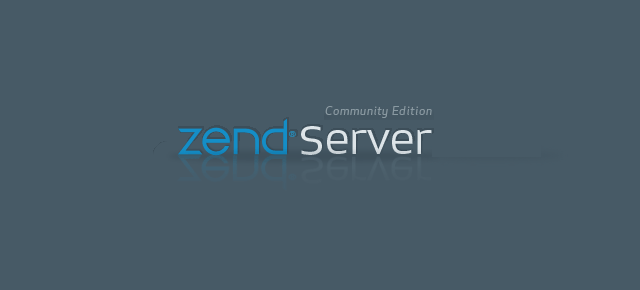 Looking for a fast, reliable and easy PHP stack on Ubuntu? Look no further, the Zend Server is probably what you’re looking for. And if you’re developing your PHP apps in Zend Framework it’s a no brainer.
Looking for a fast, reliable and easy PHP stack on Ubuntu? Look no further, the Zend Server is probably what you’re looking for. And if you’re developing your PHP apps in Zend Framework it’s a no brainer.
I’ve been through most of the different stacks out there including doing the complete LAMP-installation from scratch. Maintenance is troublesome and configuration (and lack of personal configuration-documentation) makes most of my installations unmanageable after a year or so. Until i found Zend Server, especially the Community Edition which is a completely free PHP stack backed and built by the people over at Zend Technologies Ltd.
If you’ve ever looked into different PHP frameworks you’ve probably stumbled over Zend Framework, which ties in extremely well with the Zend Server. So if you’re developing PHP apps using Zend Framework, the Zend Server will make your life a lot easier.
Zend Server is a pre-integrated PHP application stack including the most up to date setup and configuration for your server (VPS, Amazon AMI etc). It includes Bytecode accelerator (Optimizer+), Zend Data Cache, A certified PHP distribution, Zend Framework, Apache (or IIS integration), Out-of-the-box connectivity to all common databases, Java code connectivity and a Web-based PHP administrator console.
I recently setup another Ubuntu Server with Zend Server CE and thought i’d quickly run through the various commands you need to be up and running within no-time.
I strongly recommend that you install this on a fresh server since Zend Server is preconfigured with webservers, databases, php etc out of the box. If you already have Apache, PHP etc installed on your machine you’re probably going to run into trouble. Also please keep in mind that you need to have sudo-access for this.
Installing Zend Server Community Edition (CE) on Ubuntu 10.04.3 LTS
Start by adding the official Zend debs to your distribution.
sudo nano /etc/apt/sources.list
And the following snipplet in the bottom of the file
deb http://repos.zend.com/zend-server/deb server non-free
Add the Zend’s repository public key
wget http://repos.zend.com/zend.key -O- | sudo apt-key add -
Now synchronize the repositories
sudo apt-get update
Finally install Zend Server with PHP 5.3
sudo apt-get install zend-server-ce-php-5.3
All done, you now have Zend Server Community Edition installed!
You can access your installation via https://localhost:10082/ZendServer (secure) or http://localhost:10081/ZendServer. If you cannot access your server via a browser on localhost, just replace localhost with either the servers public IP or a domainname.
From here on there are millions of opportunities, but i’ll try and cover those in another guide. Good luck and happy coding!
More information and links:
Zend Server Community Edition
Zend Framework
Zend Technologies Ltd.
Thanks, worked great!
flawless. great! thanks.
Great man, your article pretty useful, but how do you know the url for zend server is http://localhost:10081/ZendServer ?, where i can find it from my zend server(ubuntu) ?